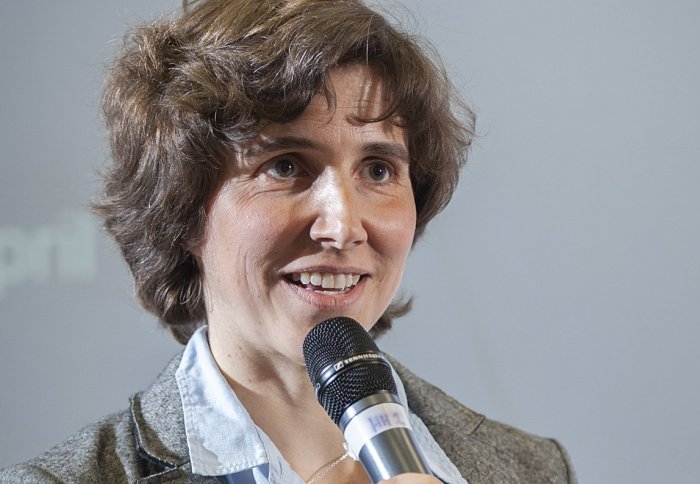Interview: Mirabelle Muuls on training the business leaders of tomorrow
by Simon Levey

The Grantham Institute and Imperial College Business School welcome 44 students onto a new Master's course in Climate Change, Management & Finance.
Dr Mirabelle Muûls is Grantham Lecturer in the Economics of Climate Change and Assistant Professor at Imperial College Business School.
Her dual appointment is the inspiration for Imperial’s new MSc in Climate Change, Management and Finance. The course, for which she is programme director, welcomed its first 44 students this week.
In this interview, Dr Muûls talks about her ambitions for the students on the course and why there need to be more graduates with both financial and scientific skills.
The piece first appeared as a feature in the annual Grantham Institute Outlook 2016-17.
The Grantham Institute - Climate Change and the Environment, is one of Imperial’s global challenge institutes, which aims to shape the College’s priorities in this area: to inform government, business and industry, and civil society; to create and appraise expert knowledge; to train the next generation of leaders; and to support innovation.

Students gather for an ice-breaker at the Grantham Institute
Who would be your perfect MSc student?
"The Master’s is open to graduates with‘a quantitative degree’, such as maths,science, engineering, economics or finance. It is intended for people withan interest in climate change and the intention to work in business."
What does the course focus on?
"The programme has an innovative new syllabus with tailor-made modules.They have been designed to address both the scientific and the business aspects of the subject. For example,the material on risk management will emphasise applications to climate change and sustainability."
How do you see the course evolving?
"The overall intention is to expand studentnumbers to about 80 over the nextfive years. As climate change issuesgain in significance for businesses, the attractiveness of the degree willcertainly grow too. The students are keen to aim for a career in which theywill have a positive impact on society."

Professor Nelson Phillips, Acting Dean of the Imperial College Business School, welcomes students
How is the course relevant inthe business world?
"Steps have been taken to ensure that the course’s future graduates are attractive to employers. Firms in the energy industry and in fields such asretail, finance and consultancy were involved in its design. They all agreed that there are too few graduates with both financial and scientific skills. And the degree has an advisory board with members from leading companies, who have steered the course.
"While the graduates could end upusing their skills in a range of ways,our intention is to train the business leaders of tomorrow."
Article text (excluding photos or graphics) © Imperial College London.
Photos and graphics subject to third party copyright used with permission or © Imperial College London.
Reporter
Simon Levey
Communications Division